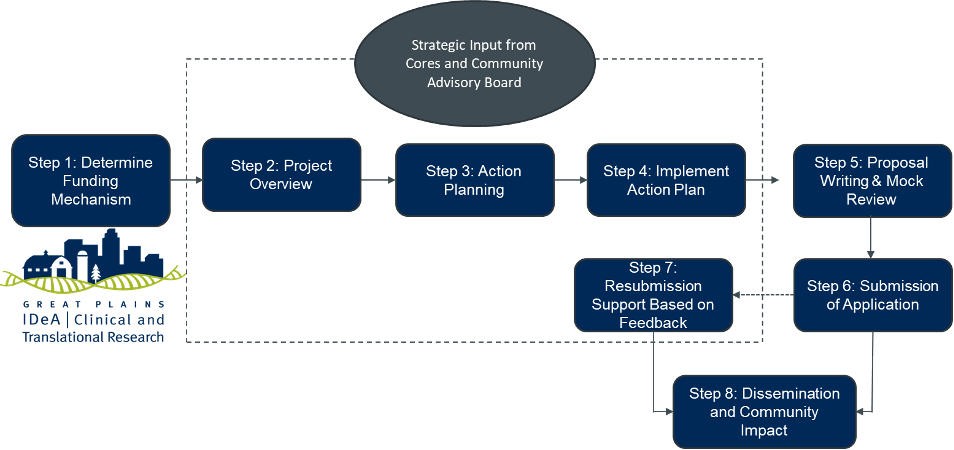Introducing the Community-Engaged Clinical and Translational Research Incubator
Clinical and translational researchers call for resources to help develop community-engaged research that is competitive for NIH funding.
As the Community Engagement and Outreach Core (CEO) of the Great Plains IDeA Clinical and Translational Research Network (GP IDeA-CTR) we’ve provided a lot of consultation to researchers on how best to initiate community partnerships that can support their research. We have had some success with proposals we have consulted on securing federal funding. However, we have also had feedback that it would be great to have an opportunity for researchers and their community partners to engage in ongoing consultation starting with the development of the research question and consultation through shared leadership. Researchers were also interested in ongoing support to address how best to engage in local healthcare settings to use existing data to assess study outcomes, determine practical methods to account for clustering in community research, and assess community capacity.
The Community-Engaged Clinical and Translational Research Incubator will facilitate the development and submission of high-quality and competitive NIH research proposals.
In response to this feedback, the Community-Engaged Research Interest Group (CEnRIG), CAB, and CEO leadership developed a Research Incubator — a multi-component, sustained collaboration that addresses research idea generation through grant proposal submission (see figure below). We consulted the literature on project incubators from business, entrepreneurial, and public health models and aligned the ideas with the sections of the NIH research plan. It is designed using ongoing scientific and community support and the strategic participation of other GP-IDEA-CTR Cores (e.g., Professional Development, Biomedical Informatics, Bioinformatics, and Cyberinfrastructure Enhancement, Biostatistics, Epidemiology, & Research Design) depending on the need of each scientific team that participates in the Incubator. The Incubator will focus on the development of community-engaged CTR proposals that examine processes and outcomes related to identification and planning, dissemination to individuals and organizations, implementation, sustainability, and impact of health interventions.

The intended users of the Incubator are GP-IDEA-CTR Members.
Community-engaged CTR teams that have the potential to develop successful NIH grant applications that advance translational science and provide an impact for partner communities. We anticipate that this resource will benefit both established and early-career investigators.
What are the expectations we have for the Incubator?
We hope that the Incubator will result in short-term outcomes to improve the collaborative capacity of the research team (measured using common community-engaged research metrics), increase the number of community-engaged CTR proposals submitted, and improve award success rates. In the long-term we hope to demonstrate that research developed as part of the incubator will demonstrate the movement of science along the translational spectrum, a meaningful community impact, and sustained community partnerships.
How can you access the Community-Engaged CTR Incubator?
Applications will be accepted twice per year, during the first and third quarter of each award year. We will circulate a call for applications in January 2021. An application will include a letter of intent that provides evidence of community engagement (i.e., consultation to shared leadership) and evidence that the research question addresses a GP-IDEA-CTR priority health area. Applicants will be required to provide a description of how the project will move a scientific idea from one CTR stage to the next (e.g., moving from efficacy to effectiveness) as well as the potential to benefit the community. Finally, the applicant team will outline the potential for federal funding and the partnership’s commitment to participate in a 6- or 12-month incubator that culminates with a grant submission. The CEO Core and CAB will review applications against these criteria and select the top 2-3 applicants per cycle. In addition, proposals that are submitted, but not funded, will also have access to engage the CEO consultation resources to develop a strong resubmission.
